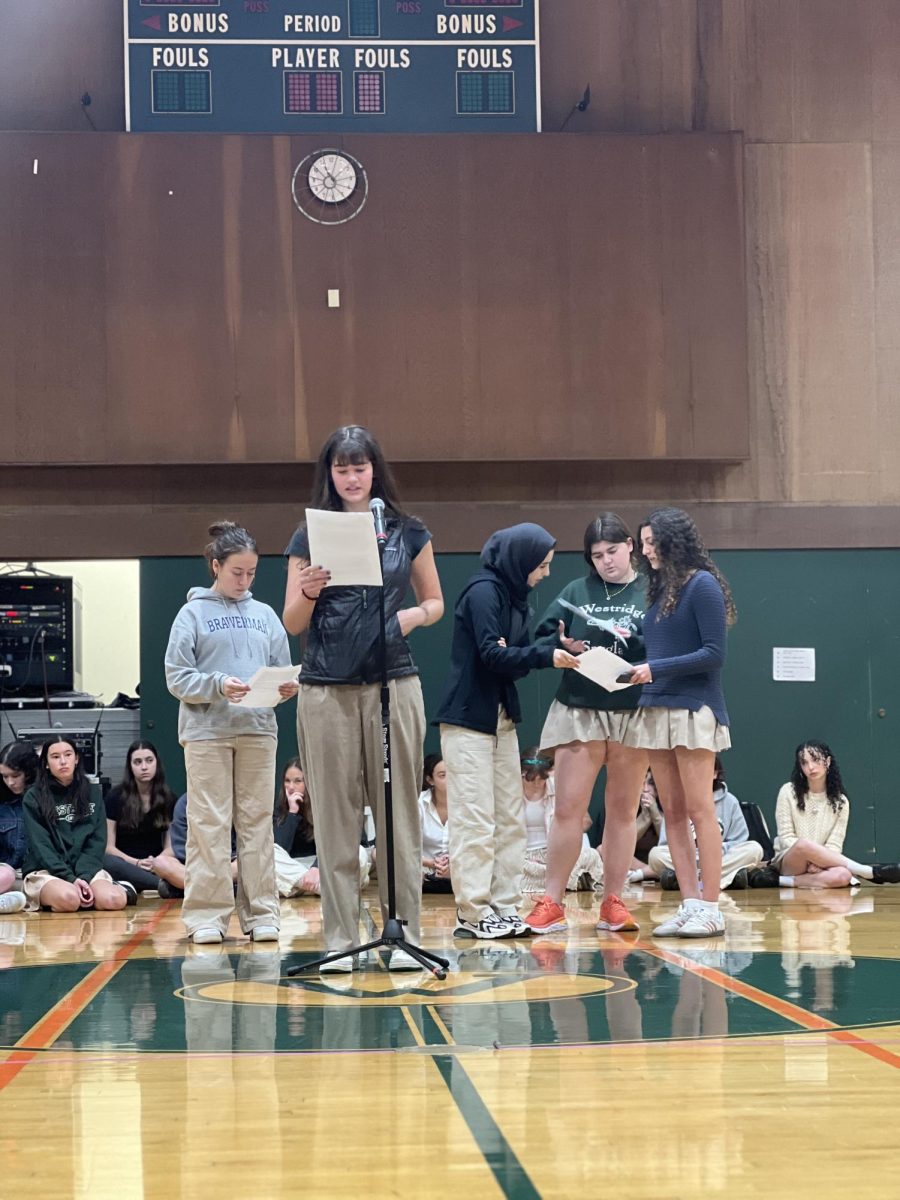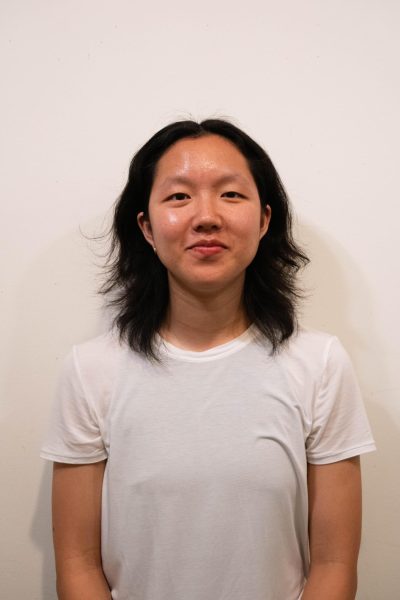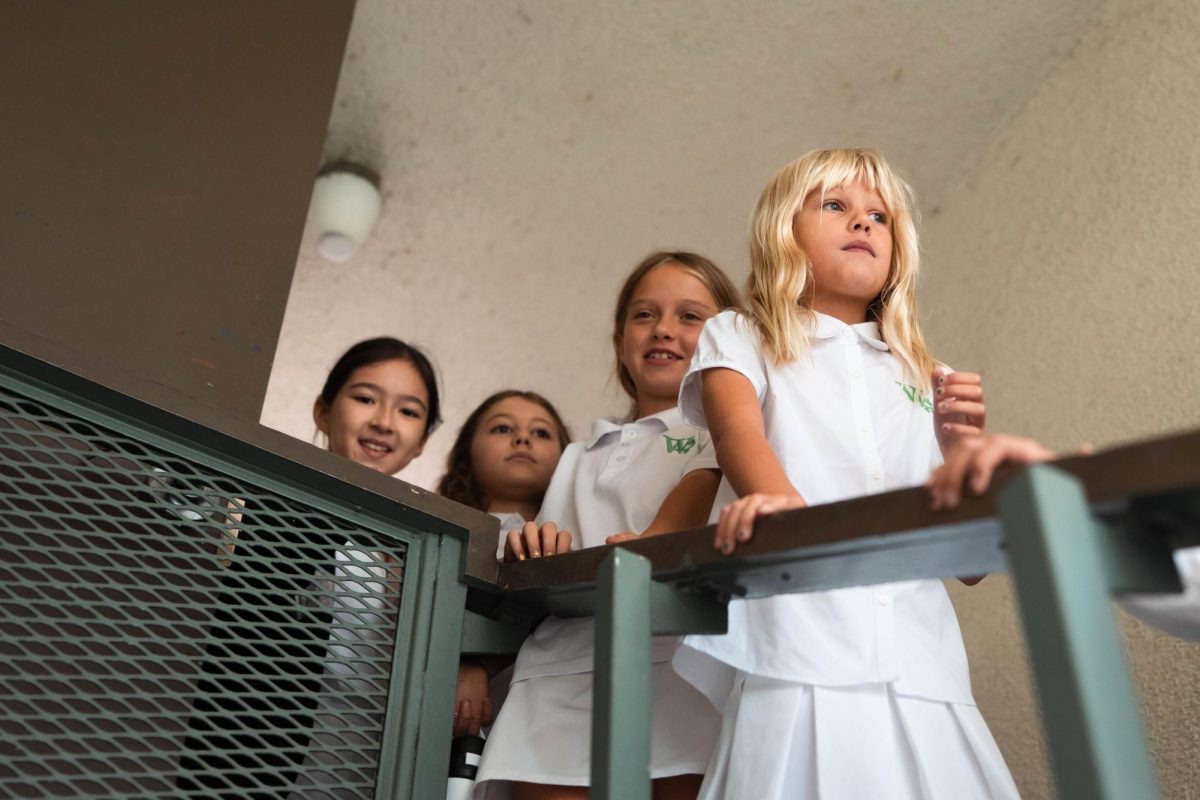On November 13, 2023, students poured into the Hoffman Gymnasium, forming a discussion circle facing members of the Middle Eastern and North African (MENA) and Jewish Affinities. An atmosphere of palpable tension and solemnity formed as the heads of the MENA and Jewish Affinities began discussing the recent escalation of the Israel-Palestine conflict. They started by speaking about the global response and shared statistics on the rise in anti-Arab and antisemitic extremism. Around the room, serious faces looked at each other or simply down at the gym floor as the sound of the microphone filled the space.
“Usually there’s always the people who are having their little conversations or on their phones or whatever, but I felt like a lot of people were engaged. And it was very silent. And I feel like people were actually listening, just because of the scale of what we were talking about, but also with just how emotional things were,” Saba K. ’25, one of the heads of MENA Affinity, said.
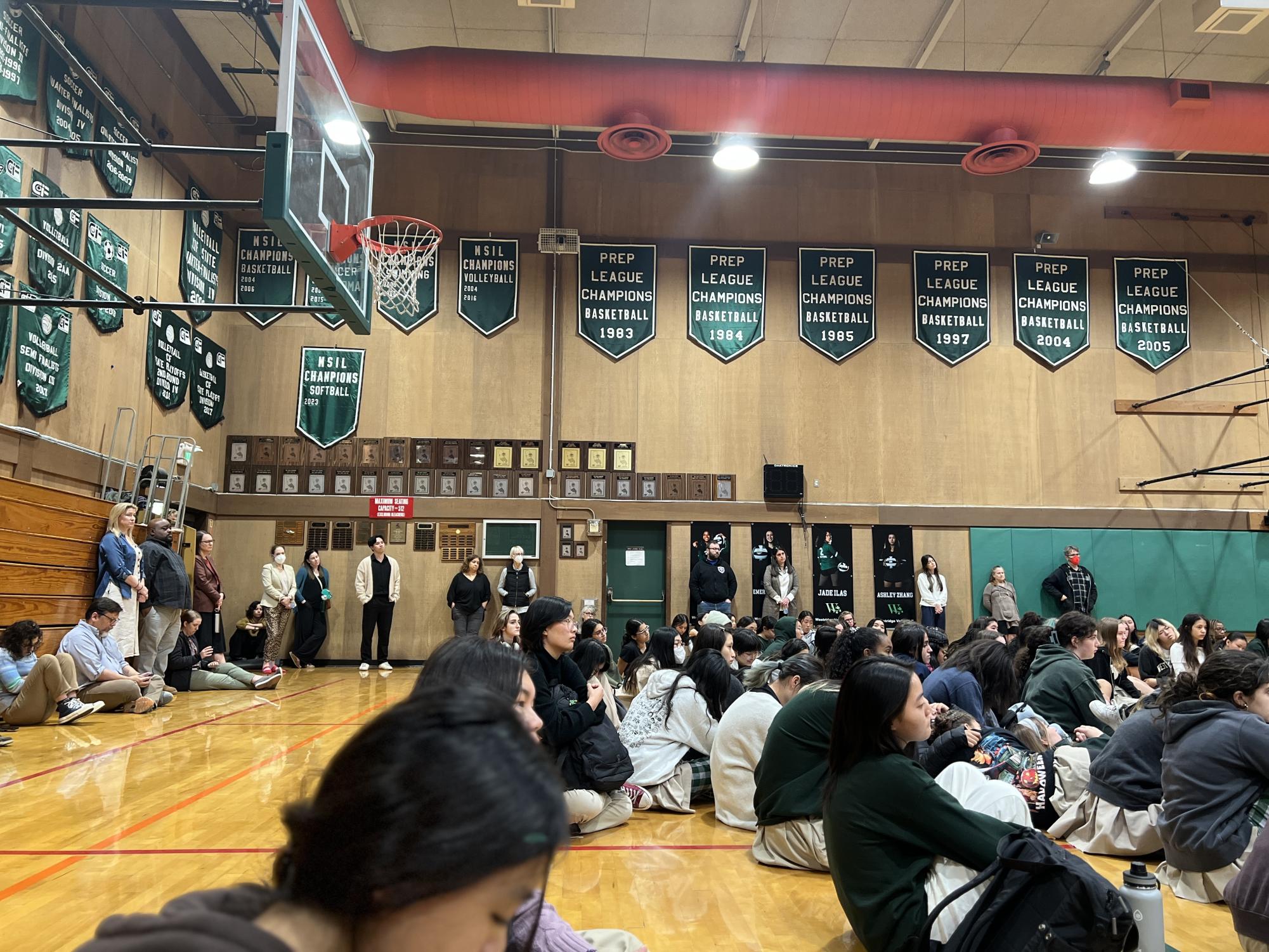
Following Hamas’ attacks on Israel on October 7, 2023, MENA Affinity heads (Noa K. ’24, Daria H. ’24, and Saba K. ’25) led an optional lunch discussion to educate and support the community in processing the recent events. However, as the situation continued to intensify, the MENA Affinity heads and two of the Jewish Affinity heads, Micah M. ’25 and Spyglass editor and Social Media Manager Ella B. ’25, met with administration on three occasions to explore ways for the school to actively support students.
The heads, along with Head of School Ms. Andrea Kassar, Director of Upper School Mr. Gary Baldwin, and Director of Equity Mr. Ian Tatum, coordinated a community gathering on November 13. They also scheduled a three-part series on the history of the Israel-Palestine conflict led by Upper School History Teacher Ms. Sandy de Grijs during lunch.
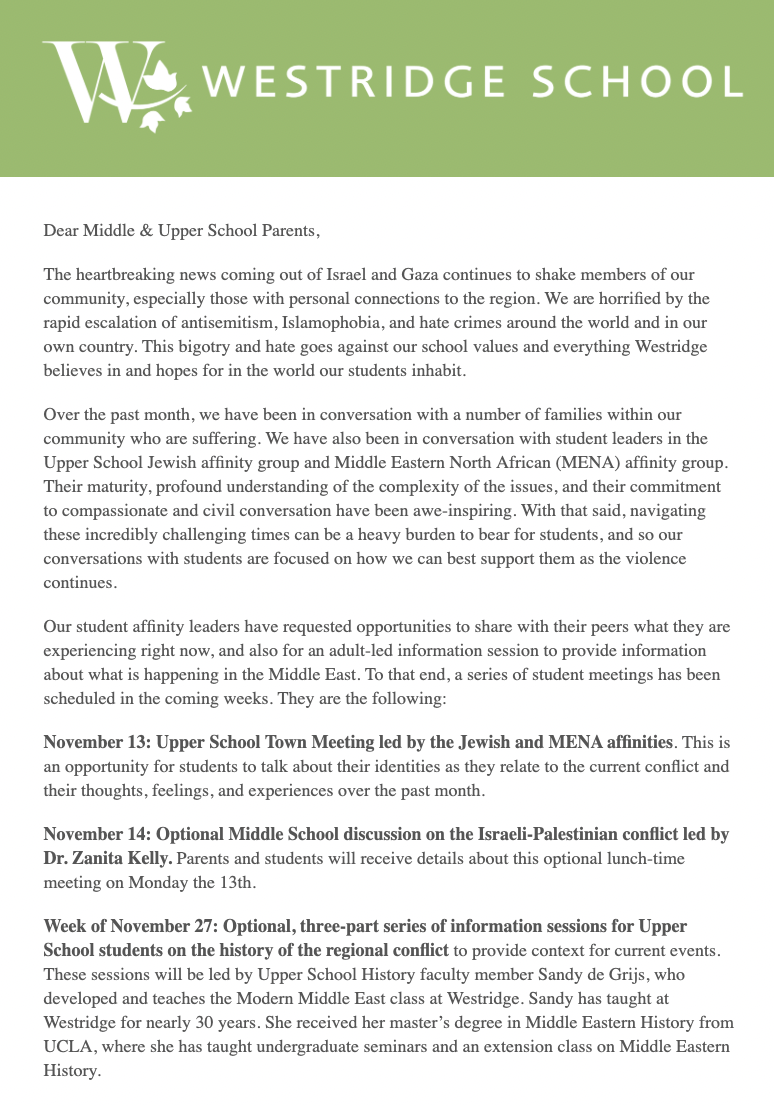
The community gathering, beyond being informational, was intended to provide a platform for students to share their perspectives and experiences related to the ongoing conflict. “We wanted to create a space where people would feel safe enough to share whatever they wanted to share and not feel like they were being judged in any way and could really share their grief and be vulnerable,” Noa K. ’24, another head of MENA Affinity and a member of the Jewish Affinity, said.
Rebecca F. ’27, a member of the Jewish Affinity, spoke at the community gathering about her experience as a Jewish person involved with a synagogue who works with young children during a rise in antisemitism. “Sharing in front of [the entire Upper School student body] was definitely scary, with so many people and a very personal story, but it’s important that we have space to talk about these things. It definitely felt good that we had a space to do that, and people were able to hear what I had to say,” she said.
Prior to the gathering, the heads sent out a form for any Upper School students to submit anonymous testimonies. Instead of a typical Town Hall style format of an open-mic discussion, the affinity heads chose to spend the meeting sharing the anonymous experiences of students. Members of their respective affinities were invited to share their preplanned statements. The decision was intentionally made to highlight the voices of the students most affected and to prevent any possible insensitive or uninformed remarks.

Josie S.J. ’27, another member of the Jewish Affinity, did not speak at the community gathering but said, “I liked the anonymous testimonies, and I liked that people shared their opinions—Do I agree with all of them? No, but I appreciated all the people who shared, and I think it was a successful discussion.”
However, as one student anonymously brought up, representation in the discussion was heavily unbalanced. The testimony stated, “I appreciate the perspectives of my Israeli and Jewish peers, empathize with their pain, and commend them for standing up for innocent lives on both sides of this conflict, but I just wish that I could hear more of the Palestinian perspective and offer that community the same empathy and understanding.” Only one testimony by a self-identifying Palestinian was submitted, and as a Middle Schooler, they weren’t able to participate in the community gathering and other events.
The affinity heads reminded students of the three-part informational sessions led by Ms. de Grijs. While the lunch meetings were optional, Saba wanted to emphasize the need for students to understand the proper context behind the conflict. Otherwise, she said, “People are going to go to that community gathering and base their opinions and biases purely on those emotional testimonies without actually having the knowledge of what’s been going on longer than this month.”
While there are not any upcoming meetings planned at this time, “There is hope that we will have more events in the future and that this reaction will not just be limited to this week,” Noa said. She added, “We know that it’s affecting so many people and so it’s not fair to just brush it under the rug once it’s not trendy anymore to talk about it.”
Suggested Reading:




























![Dr. Zanita Kelly, Director of Lower and Middle School, pictured above, and the rest of Westridge Administration were instrumental to providing Westridge faculty and staff the support they needed after the Eaton fire. "[Teachers] are part of the community," said Dr. Kelly. "Just like our families and students."](https://westridgespyglass.org/wp-content/uploads/2025/03/dr.-kellyyy-1-e1748143600809.png)






















